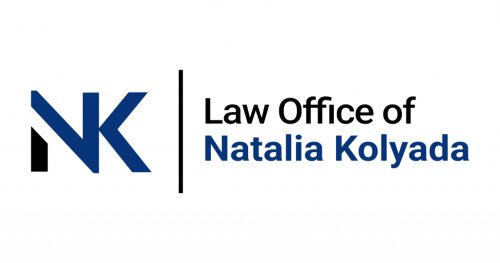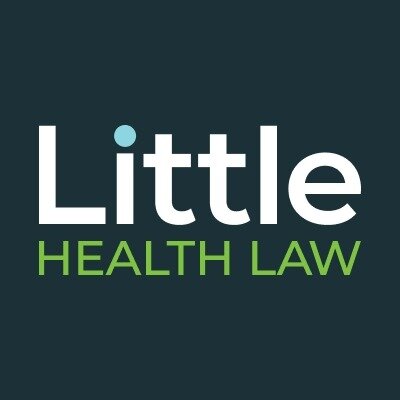Best Health Care Lawyers in Georgia
Share your needs with us, get contacted by law firms.
Free. Takes 2 min.
Or refine your search by selecting a city:
List of the best lawyers in Georgia, United States
About Health Care Law in Georgia, United States
Health care law in Georgia refers to the wide array of state and federal statutes, regulations, and judicial decisions that impact the delivery, quality, financing, and regulation of health care services in the state. Georgia’s health care laws cover areas such as hospital and clinic operation, provider licensing, patient privacy, insurance, Medicaid and Medicare, and patient rights. In addition, these laws govern the relationships between health care providers and patients, as well as insurers, employers, and government agencies. Georgia follows both federal guidelines and its own unique state rules to address public health needs, enforce health care standards, and protect consumer rights.
Why You May Need a Lawyer
Dealing with health care issues in Georgia can sometimes require specialized legal guidance. Here are some common situations where consulting a health care attorney may be useful:
- Problems with health insurance coverage, such as denied claims or disputes with an insurer
- Understanding or appealing a Medicaid or Medicare decision
- Issues concerning patient privacy and HIPAA violations
- Medical malpractice claims or negligent care concerns
- End-of-life planning, such as living wills or advance directives
- Billing or debt collection issues related to medical services
- Licensing or disciplinary actions affecting health care professionals
- Disputes related to prescription drugs or access to treatment
- Confusion about patient rights under Georgia or federal law
Having a lawyer who specializes in health care law ensures that your rights and interests are protected, and that you receive proper guidance for complex regulatory or legal challenges.
Local Laws Overview
Georgia’s health care laws govern a broad range of issues. Some of the most important aspects include:
- Provider Licensing and Regulation: Georgia’s Composite Medical Board, Board of Nursing, and other regulatory bodies set standards and investigate complaints against health care professionals.
- Certificate of Need (CON): Georgia requires certain health care facilities to obtain a Certificate of Need before construction or expansion, to control costs and avoid duplication of services.
- Patient Privacy and Records: Georgia law complements HIPAA in protecting patient information and regulating access to medical records.
- Medicaid and PeachCare: Georgia administers Medicaid and PeachCare for Kids, which provide health coverage to eligible low-income residents and children.
- Medical Malpractice: Georgia law sets out strict processes for bringing malpractice claims, including time limits and expert affidavit requirements.
- End-of-Life Care: Georgia’s Advance Directive for Health Care Act allows individuals to outline their preferences regarding medical treatment in advance.
- Insurance Regulation: Georgia’s Insurance Commissioner oversees the health insurance market, enforcing consumer protections and ensuring compliance with state laws.
These laws interact with federal statutes, and updates occur regularly, so professional guidance is recommended for any major health care legal issue.
Frequently Asked Questions
What are my rights as a patient in Georgia hospitals or clinics?
You have the right to receive respectful care, be informed about your diagnosis and treatment, confidentiality of your health information, and to participate in or refuse treatment. Georgia law also provides for obtaining copies of your medical records and filing complaints about care quality.
What should I do if my health insurance company denies a claim?
You can request a detailed explanation, file an appeal with your insurer, and, if necessary, file a complaint with the Georgia Office of Insurance and Safety Fire Commissioner. Legal help is recommended if you face ongoing denial or if large sums or critical care are involved.
How can I access my medical records in Georgia?
Under Georgia law, you can request copies of your medical records from your health care provider, usually in writing. Providers can charge reasonable fees but must provide access within 30 days.
What is the statute of limitations for medical malpractice claims in Georgia?
Generally, you must file a lawsuit within two years from the date of injury, with a five-year limit from the date of the negligent act. There are exceptions for cases where negligence was discovered later (such as foreign objects left in the body).
Do I need to get a lawyer for Medicaid or Medicare issues?
While not always required, a lawyer familiar with health care law can help with appeals, denials of coverage, or accusations of fraud and can ensure you receive the benefits you are entitled to under Georgia and federal law.
How are health care providers licensed in Georgia?
Health care providers must meet education, examination, and professional standards set by designated licensing boards such as the Georgia Composite Medical Board or Board of Nursing. Complaints about providers are directed to the relevant board.
What is a Certificate of Need, and why does it matter?
A Certificate of Need (CON) is state approval required before building, expanding, or offering new health services at a facility. It is intended to prevent unnecessary duplication and keep health care costs manageable in Georgia.
Can a doctor refuse to treat me?
Doctors can refuse treatment except in emergency situations or if doing so would violate anti-discrimination laws. They must provide notice if ending a doctor-patient relationship. Emergency rooms must stabilize and treat anyone needing emergency care.
How do advance directives work in Georgia?
Advance directives allow you to state your wishes for medical treatment if you become unable to communicate. In Georgia, the Advance Directive for Health Care is legally recognized and appoints a health care agent or records your care preferences.
Where can I report a problem with my health care provider?
You can file a complaint with the appropriate licensing board, such as the Georgia Composite Medical Board for doctors or the State Board of Nursing for nurses. You may also complain to your facility’s patient advocate or the Georgia Department of Community Health.
Additional Resources
For those seeking further information or assistance on health care legal issues in Georgia, consider contacting:
- Georgia Department of Community Health
- Georgia Office of Insurance and Safety Fire Commissioner
- Georgia Composite Medical Board
- Georgia State Bar Association, Health Law Section
- Georgia Legal Services Program (offers legal aid)
- Centers for Medicare & Medicaid Services, Regional Office
- Georgia Department of Public Health
- Patient Advocate Foundation
These organizations can assist with regulatory complaints, consumer questions, and provide legal or counseling resources related to health care.
Next Steps
If you believe you need legal assistance with a health care issue in Georgia, consider the following steps:
- Gather all documents related to your matter, such as bills, correspondence, medical records, and any insurance paperwork.
- Write down a clear timeline of the events or issues involved, including any communications with health providers or agencies.
- Contact one of the resources listed above or consult with a licensed Georgia attorney who specializes in health care law.
- Ask about consultation fees, potential costs, and the expected process for your type of issue.
- If finances are a concern, inquire about free or low-cost legal aid through local legal services organizations.
Taking early, informed action with the support of qualified professionals can help protect your rights and ensure you receive fair treatment within Georgia’s health care system.
Lawzana helps you find the best lawyers and law firms in Georgia through a curated and pre-screened list of qualified legal professionals. Our platform offers rankings and detailed profiles of attorneys and law firms, allowing you to compare based on practice areas, including Health Care, experience, and client feedback.
Each profile includes a description of the firm's areas of practice, client reviews, team members and partners, year of establishment, spoken languages, office locations, contact information, social media presence, and any published articles or resources. Most firms on our platform speak English and are experienced in both local and international legal matters.
Get a quote from top-rated law firms in Georgia, United States — quickly, securely, and without unnecessary hassle.
Disclaimer:
The information provided on this page is for general informational purposes only and does not constitute legal advice. While we strive to ensure the accuracy and relevance of the content, legal information may change over time, and interpretations of the law can vary. You should always consult with a qualified legal professional for advice specific to your situation.
We disclaim all liability for actions taken or not taken based on the content of this page. If you believe any information is incorrect or outdated, please contact us, and we will review and update it where appropriate.
Browse health care law firms by city in Georgia
Refine your search by selecting a city.












